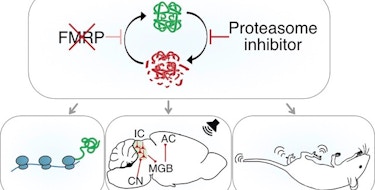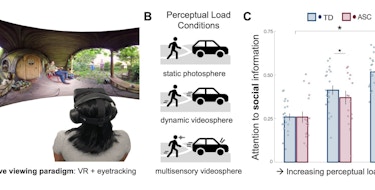SFARI’s latest cohort, SPARK, is an effort to recruit at least 50,000 families with an individual who has autism. While the genotyping and exome sequencing of this cohort is expected to drive the identification of new autism risk genes (Feliciano et al., bioRxiv, 2019), a range of other research opportunities are also available (SPARK Consortium, Neuron, 2018). In particular, SPARK’s research match program, which connects researchers and families, promises to enable new research questions to be addressed rapidly and at large scale.
Two recent studies provide examples of the effectiveness of this online recruitment effort. Brigitta Monz, Richard Houghton and colleagues invited participants in the SPARK cohort, which now includes more than 65,000 people with autism, to take part in questionnaire-based studies via email. In particular, their goals were to (1) validate the Autism Impact Measure (AIM) as a caregiver report of autism symptom frequency and impact, and (2) gather information about caregiver-reported patterns of nondrug autism treatment in the United States and the impact of geographic location and health insurance coverage.
The investigators received more than 5,000 responses in a six-week timespan. In regard to the AIM, they were able to show that it can detect differences between known subgroups of individuals and also were able to estimate the magnitude of the difference on the AIM scale that constitutes a clinically meaningful change. Given the limited time to complete the AIM (median time of seven minutes), the authors suggest that it could offer a less expensive and burdensome method of monitoring changes in symptoms over time.
The study of treatment patterns found differences between metropolitan and nonmetropolitan areas, but no significant differences between those with private insurance and those with Medicaid. As all participants in SPARK have agreed to be recontacted, repeated follow-up measures in the same participants should further boost the value of these data sets.

Psychometric validation of the Autism Impact Measure (AIM).
Houghton R., Monz B., Law K., Loss G., Le Scouiller S., de Vries F., Willgoss T.
J Autism Dev Disord. 49, 2559-2570
Treatment patterns in children with autism in the United States.
Monz B.U., Houghton R., Law K., Loss G.
Autism Res. 12, 517-526


